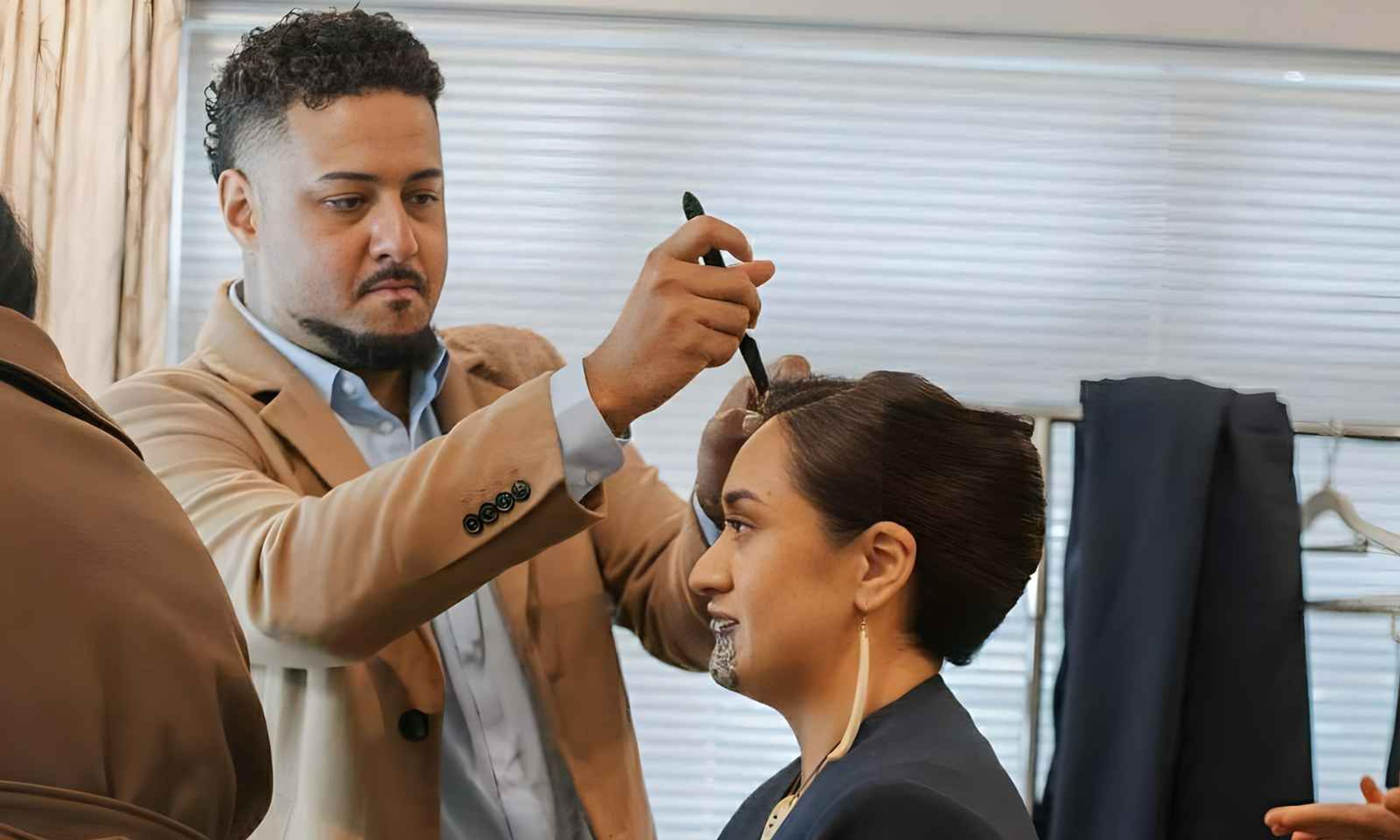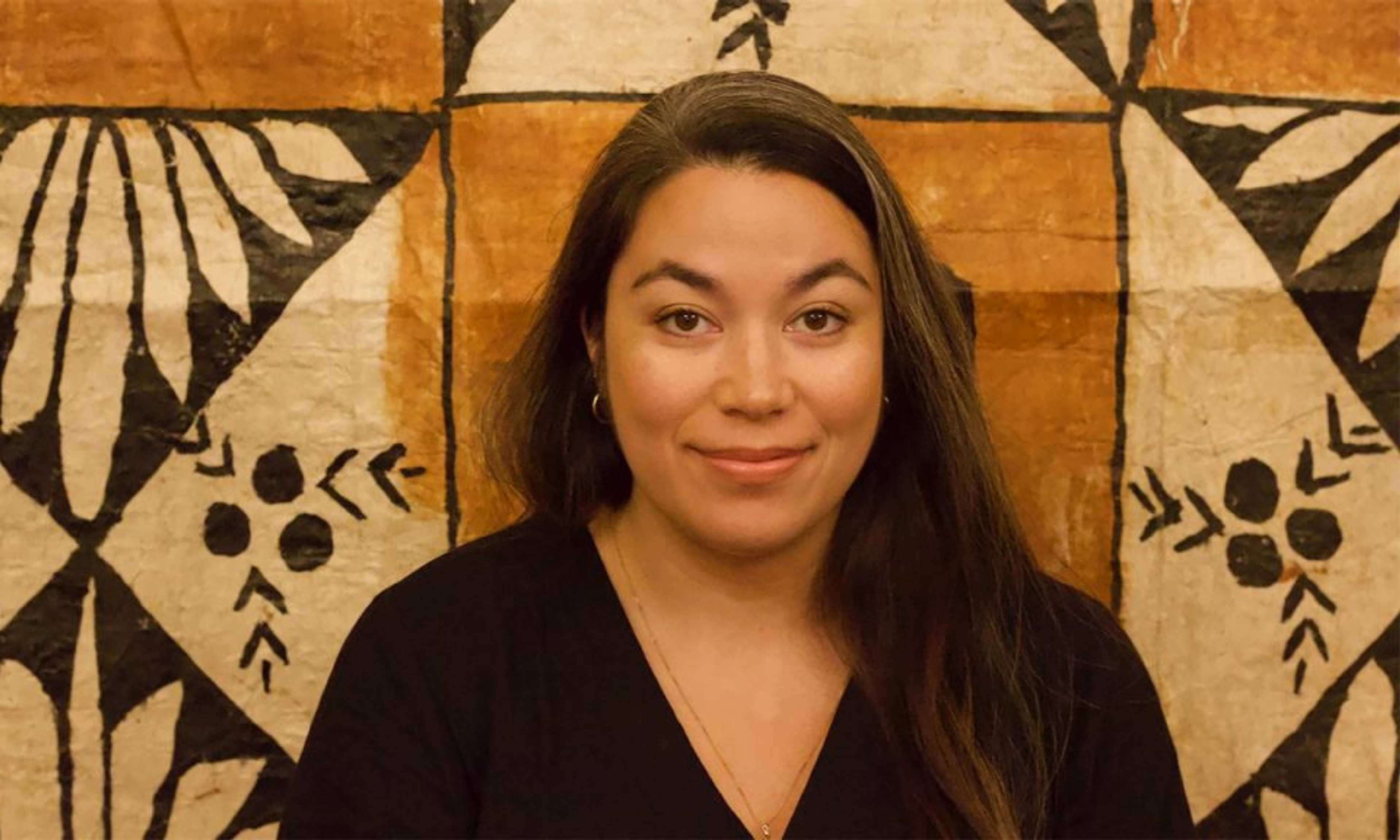

Dr Sarah Kapeli says Pacific communities understand mental health from a holistic and collective point of view.
Photo/University of Auckland
'Asking for help is not a weakness': Tongan researcher on mental health awareness
Dr Sarah Kapeli calls for culturally grounded support and small acts of care to strengthen Pacific wellbeing.


Ancient DNA shows how Pasifika carried pigs across the ocean


Holiday Classics: The sports films that bring families together

From the friendly isles to Koroneihana: The Tongan hairstylist trusted with a Queen

Ancient DNA shows how Pasifika carried pigs across the ocean


Holiday Classics: The sports films that bring families together
As Aotearoa marks Mental Health Awareness Week, a Tongan academic is calling for mental health services to better reflect Pacific perspectives.
The national theme, Top Up Together, emphasises that a shared, community-based approach to wellbeing delivers lasting benefits.
Dr Sarah Kapeli, a psychology lecturer and researcher at Waipapa Taumata Rau University of Auckland, focuses on Pacific and indigenous communities, exploring how wellbeing is understood and experienced across generations.
Speaking with William Terite on Pacific Mornings, she says some Pacific people feel unsure how to discuss mental health or find conversations intrusive. Yet even small gestures of care can be transformative:
“People have also shared that when they are feeling low, they found it really helpful, sometimes life-changing, when someone noticed and checked in on them. They reached in, they often started a conversation about what is going on, which led to support, and then led to greater wellbeing.
“When we think of wellbeing more holistically, we can start to understand that it's all interconnected and that when that vā between all those different domains of our lives… is in good harmony or good balance, that's when we tend to feel good.”
Watch Sarah Kapeli's full interview below.
On Tuesday, Mental Health Minister Matt Doocey launched community grants of up to $40,000 for local mental health initiatives.
“Communities know what works best for them. By backing local initiatives, this fund supports meaningful, community-led action, from small towns to neighbourhoods in our biggest cities,” Doocey says in a statement.
Normalising mental health discussions in Pacific families
Kapeli has seen shifts in intergenerational perceptions as conversations become more commonplace. She shares her own experience:
“Talking with my own parents, especially my dad who migrated from Tonga, there’s a difference in understanding of what mental health looks like and how we should navigate that. We do hear that idea of ‘just pick yourself up’. That comes from earlier generations who may not have had the language or tools to talk about mental health. But I’ve seen change within my own family — it’s about continuing the talanoa.”
She also highlights the importance of practical, everyday self-care. Recognising the pressures many Pacific people face while balancing work, family, and community responsibilities, she encourages small, intentional acts: quiet moments for reflection, brief breaks while children play, or a few minutes alone in the car.
“Not everyone can take five, 10, or even 30 minutes. A natural value of our Pacific people is our service to others, so we can try to incorporate self-care into our daily lives, but the key is being intentional, checking in with ourselves, and also checking in on our loved ones.
“Asking for help or reaching out is never a sign of weakness. It’s also an act of courage and an act of love, and it not only serves ourselves, but it serves our family and our communities.”
Kapeli concludes with a message for communities:
“Asking for help or reaching out for help is never a sign of weakness. It’s also an act of courage and an act of love, and it not only serves ourselves, but it serves our family and our communities.”